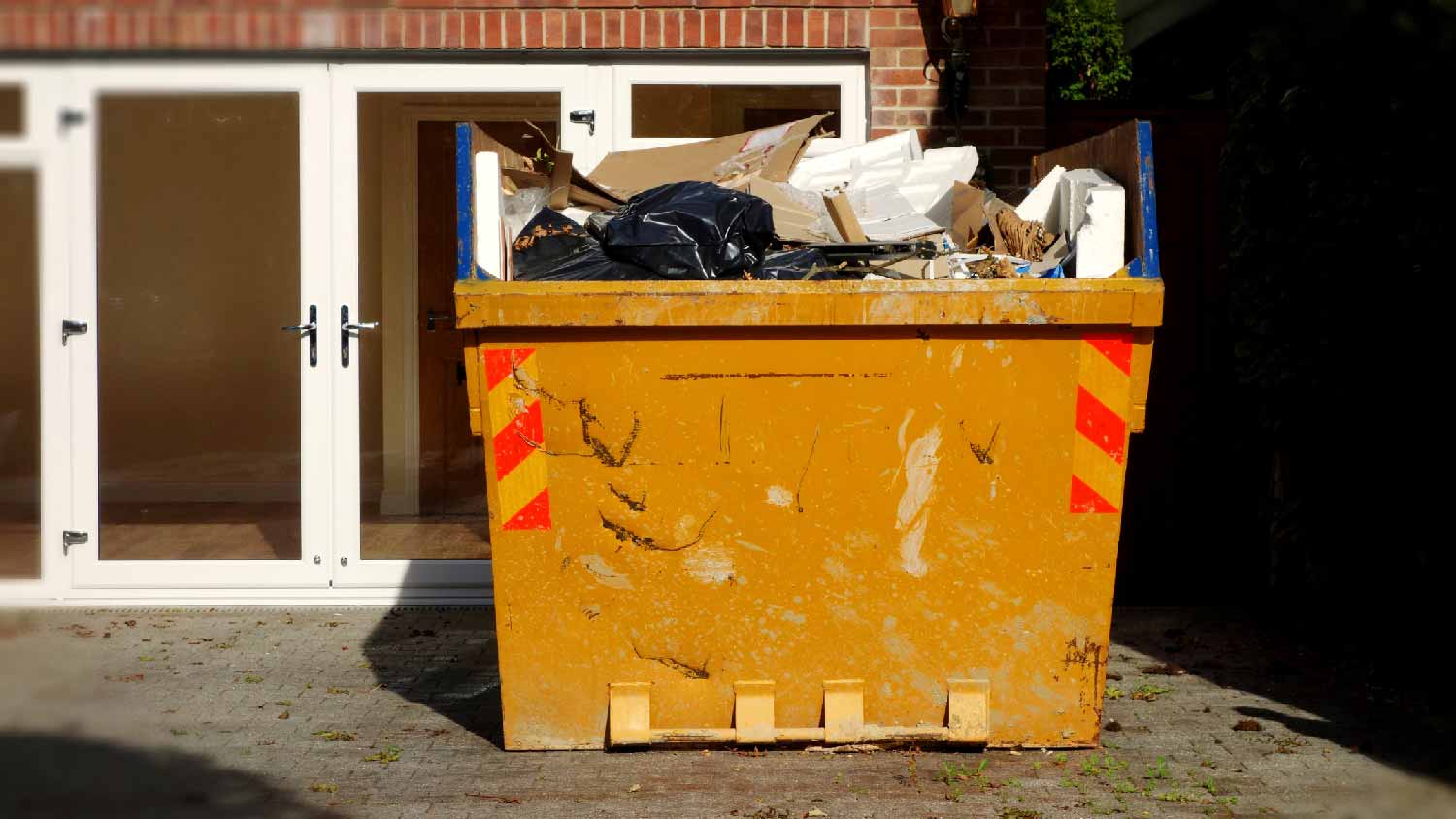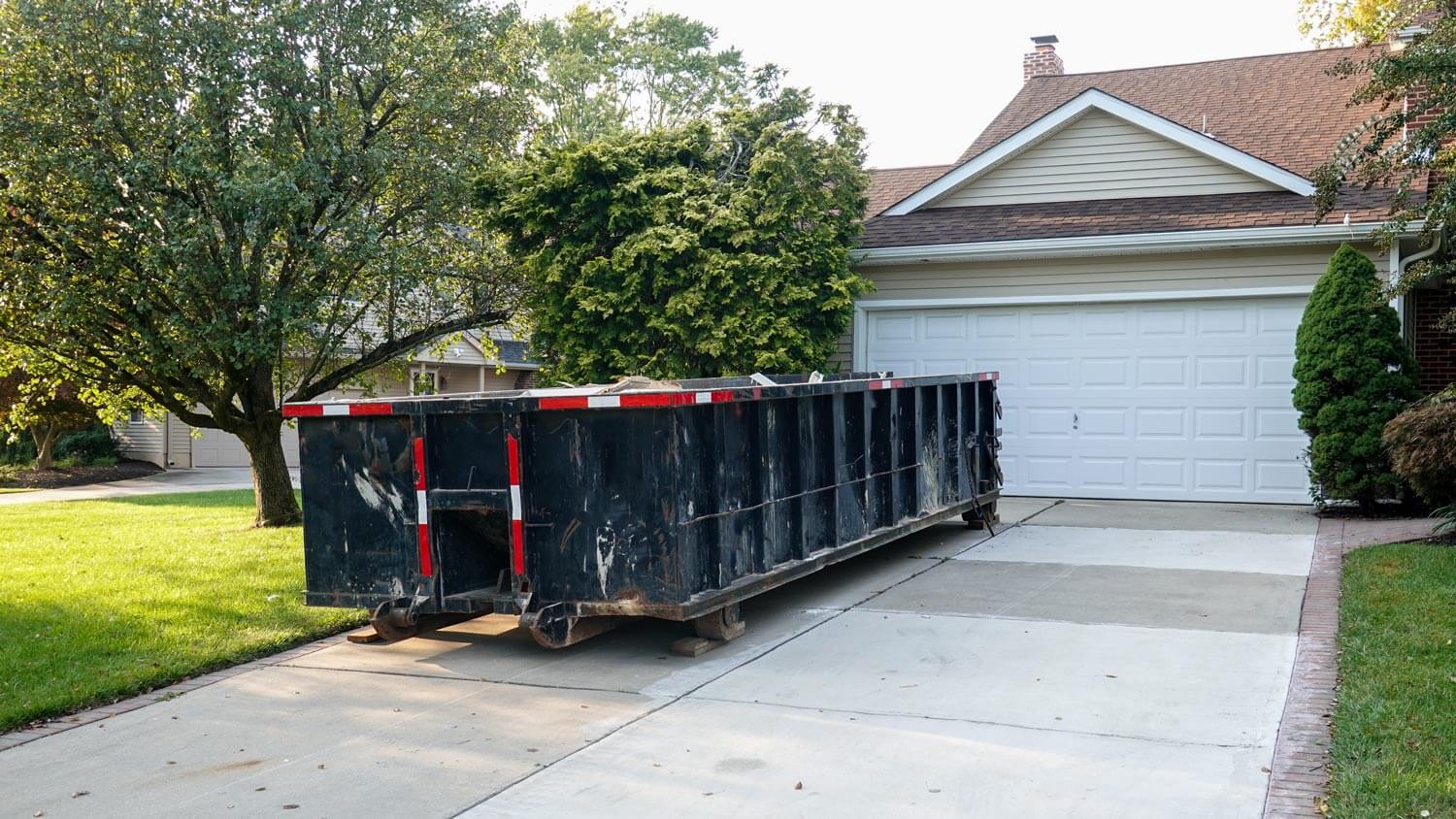
Wondering how much does it cost to rent a dump trailer? Get pricing, cost factors, and tips to help you budget for your next home project.
Illegal dumping is getting rid of waste in unapproved ways, even if it’s accidental


Illegal dumping means getting rid of waste in unapproved ways—it’s possible to illegally dump waste by accident.
Getting rid of hazardous waste in your normal garbage or a dumpster constitutes illegal dumping.
Hiring a professional for bulk waste removal is the best way to avoid illegal dumping fines and consequences.
For the most part, your standard sanitation department handles your waste removal, but when it comes to construction debris, bulk items, and even hazardous waste, illegal dumping becomes more common and can even be accidental.
Understanding what illegal dumping is is the first step to avoiding fines and a negative impact on the environment. In this guide, we’ll explain what illegal dumping is, why it’s bad, and how to avoid it.
Illegal dumping is any kind of waste disposal you don’t carry out according to federal and local regulations. The definition is broad, but it refers specifically to two different things:
Dumping general waste outside of receptacles: First, “illegal dumping” can refer to dumping regular waste that isn’t deemed hazardous in unapproved areas, like on the side of the road, in parks, or in waterways. This type of illegal dumping is mostly considered a nuisance, and in some cases, pollution of waterways and public areas can be considered hazardous.
Improperly disposing of hazardous waste materials: Another type of illegal dumping refers to placing hazardous waste materials in unauthorized trash receptacles. The Environmental Protection Agency (EPA) defines hazardous waste as any waste that is combustible, toxic, reactive, or corrosive and poses a threat to human health or the environment. Hazardous waste must be disposed of properly at facilities that specifically handle recycling or safe disposal of these items. Placing hazardous waste in a dumpster or your normal garbage is considered illegal dumping, so understanding what counts as hazardous waste is a good way to prevent accidental illegal dumping.
Illegal dumping can have a few negative effects on the environment, your health, and the health of the people around you.
Damage to the environment: Illegal dumping, whether it involves dumping general waste or hazardous waste, can be bad for the environment. The effects are especially impactful with hazardous waste, which can be detrimental to plants, animals, air quality, soil quality, and water quality. Even general pollution is bad for the environment, though.
Contaminated drinking water: Hazardous waste dumping can lead to contaminated water sources if things like pesticides, herbicides, medicines, or toxic materials soak into the soil and eventually enter an aquifer. Depending on what you’re dumping, you could be putting your entire community at risk.
Dangerous air pollution: Illegally disposing of hazardous waste like building materials that contain asbestos can release dangerous particles into the air, even if you’re just improperly transporting asbestos-containing materials. These particles can cause cancer and lung disease in humans and animals.
Exposure to biohazards: If you’re illegally dumping unused medications, used syringes, or diabetes test strips, you’re introducing biohazards into the environment, putting people and animals at risk of serious harm.
Illegal dumping fines: Aside from the negative environmental impact of illegal dumping, you’ll also likely face hefty illegal dumping fines.
Decreased community appeal: General or hazardous waste disposed of outside of approved receptacles detracts from the visual appeal of your community. Ongoing and widespread issues with illegal dumping can eventually bring down home values in the area.
Since illegal dumping can have so many negative effects, there are serious penalties for engaging in the act.
If you’re caught dumping general waste or construction debris in parks, waterways, or on the side of roadways, you’ll likely face fines of a few hundred dollars. The exact amount depends on what your local Department of Transportation (DoT) decides to charge. Fines go up for repeat offenders.
If you’re caught illegally dumping hazardous waste—and, again, it’s important to note that placing hazardous waste in dumpsters and with your regular garbage is still considered illegal dumping, even if you’re unaware that it’s illegal—you could face fines in the thousands.
Illegal dumping poses significant environmental hazards. Hazardous materials can contaminate soil, waterways, and ecosystems, leading to pollution, habitat destruction, and harm to wildlife. Additionally, improperly disposed of waste can contribute to air and water pollution, posing health risks to humans and animals.

Avoiding purposeful illegal dumping is simple: only dispose of general waste in your garbage cans for collection, and contact a local dumpster company if you have large amounts of construction debris or general waste to get rid of.
You’ll pay for the dumpster and, in most cases, the cost of a dumpster permit, but it will pale in comparison to the fines you’d face for illegal dumping.
Avoiding accidental illegal dumping of hazardous waste is a bit more complicated. First, you should understand what counts as hazardous waste—including household items like cleaners, certain light bulbs, medications, aerosol cans, paints, and automotive liquids—so that you don’t accidentally toss it in the regular garbage.
Knowing what you can put in a dumpster is also beneficial to avoid accidental placement of restricted materials, which counts as illegal dumping.
Once you understand what hazardous waste is, you should call a local waste removal professional who removes hazardous waste and is certified to handle and transport it for proper removal and recycling or disposal. Alternatively, you can look for local hazardous waste disposal programs in your area, which are often free and collect some common household hazardous waste for safe disposal.
The cost of removing waste from your property depends on the type and amount of junk you are dealing with and your chosen service. On average, hiring a hauler for junk removal costs around $135 to $370, with appliance removal averaging $65 to $250 per item and construction debris removal running anywhere from $100 to $800.
If you’re getting rid of hazardous waste, expect to pay $150 to $300, though that price can climb depending on the amount and the material. Another option for standard junk removal is to rent a dumpster. The average cost is $295 to $480 per week, but you must check what items the rental company before disposing of anything that could be considered hazardous waste.
Weekend DIY warriors may think hauling their own junk is a money-saver, but not always. Hidden costs include truck rentals and disposal fees, not to mention your own time and effort. Also, some types of waste are difficult to dispose of, including construction debris, large appliances, and various hazardous materials, which pose safety risks and require special disposal methods.
Hiring a professional junk removal service ensures quick, safe removal that complies with local regulations. For many homeowners, skipping the hassle and avoiding injury is worth the investment. If you're dealing with anything more than a few boxes or bags, call the pros. Your back will thank you.
From average costs to expert advice, get all the answers you need to get your job done.

Wondering how much does it cost to rent a dump trailer? Get pricing, cost factors, and tips to help you budget for your next home project.

Renting a dumpster is more practical than you think. Use this guide to learn how much your rental will cost, the different dumpster types available, and tips to help you save.

Despite popular belief, a dumpster is not a catch-all for every type of trash. What items cannot be placed in a dumpster? We break it down here.

Learn how to rent a dumpster for your next home project or cleaning spree.

What size dumpster do I need for furniture? It depends on a few factors. Learn more about how to determine the right capacity for your project.

If you’re embarking on a junk removal project, it’s important to know where to put the dumpster. Read on for tips to find out which is best for you.